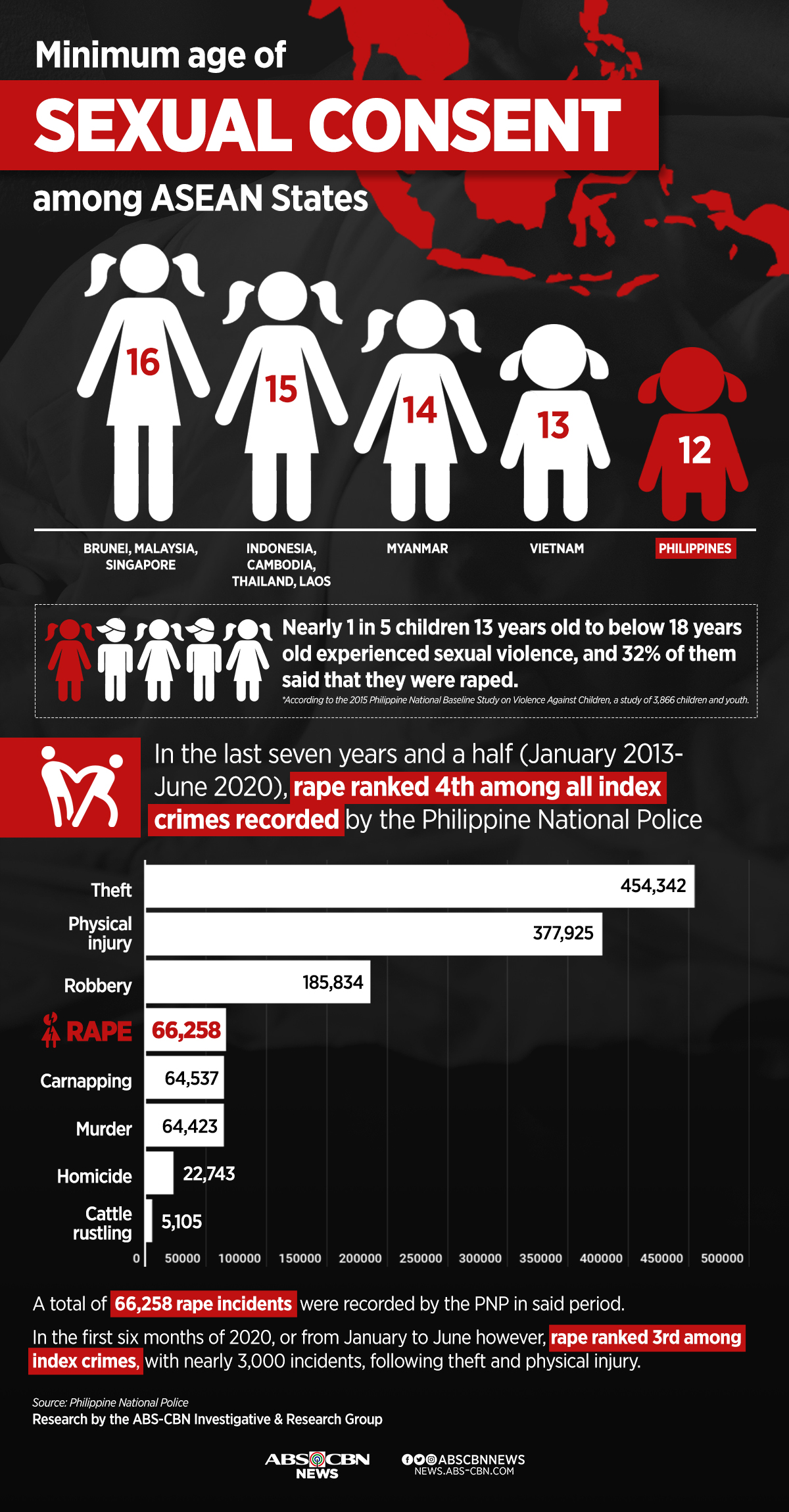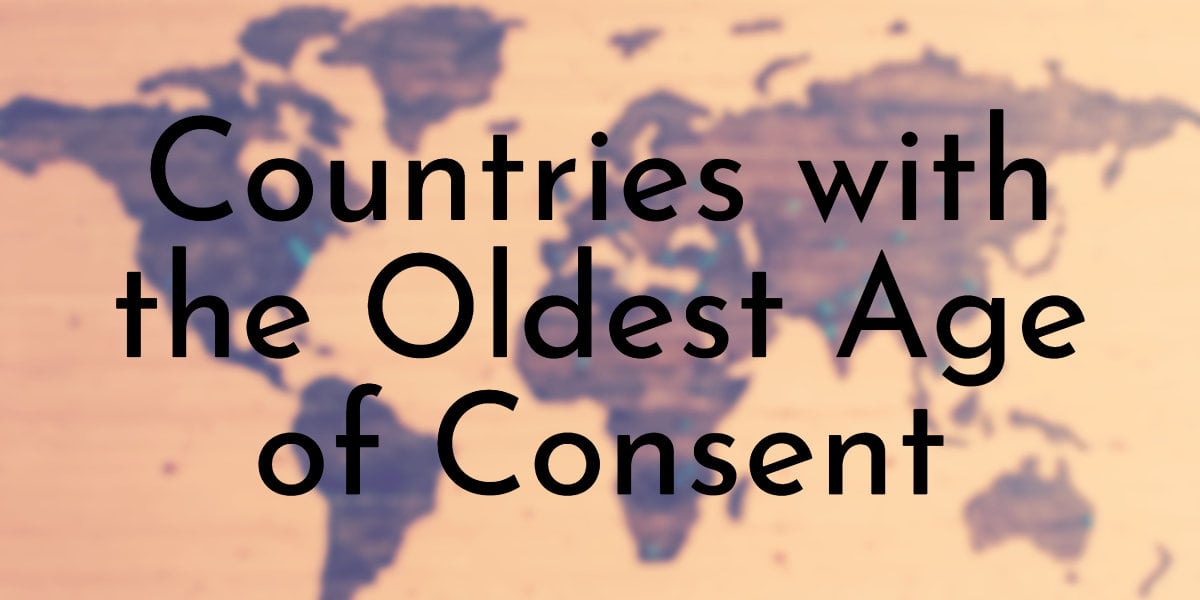Understanding Russian Age Of Consent: A Comprehensive Guide
Let’s talk about something important that might not always be discussed openly—the Russian age of consent. Whether you're researching this topic out of curiosity or for legal reasons, you've come to the right place. This guide dives deep into the laws, cultural context, and everything else you need to know. But before we jump in, let's make one thing crystal clear—this article is all about education and awareness, not judgment. We’re here to break things down in a way that’s easy to understand, so buckle up!
When it comes to understanding the Russian age of consent, it’s not just about the numbers. There’s a lot more to consider, like the legal framework, cultural nuances, and even the historical background. This isn’t just about knowing what the law says—it’s about understanding why it matters and how it affects people in Russia and beyond.
Now, buckle up because we’re about to dive headfirst into the nitty-gritty details. By the end of this article, you’ll have a solid grasp of the Russian age of consent, its implications, and the broader context surrounding it. So, grab your favorite beverage, and let’s get started!
Read also:Fae Love Ethnicity Exploring The Rich Tapestry Of Cultural Identity
What is the Russian Age of Consent?
Alright, let’s start with the basics. The Russian age of consent is the legal age at which an individual is considered mature enough to consent to sexual activity. In Russia, the age of consent is set at 16 years old. That means anyone below the age of 16 is legally unable to consent to sexual acts. But hold up, there’s more to it than just the number.
Here’s the deal: Russian law is pretty straightforward when it comes to this. If someone engages in sexual activity with a minor under the age of 16, they could be facing serious legal consequences. This isn’t just about breaking the law—it’s about protecting young people from exploitation and harm.
Why is the Age of Consent Important?
The age of consent isn’t just a random number pulled out of thin air. It’s rooted in legal, ethical, and social considerations. Here are a few reasons why it matters:
- Protection of Minors: The primary goal of setting an age of consent is to protect young people from exploitation and abuse.
- Legal Safeguards: It provides a clear legal framework for prosecuting offenders and ensuring justice for victims.
- Emotional and Psychological Development: At the age of consent, individuals are generally considered emotionally and psychologically mature enough to make informed decisions about their sexual activity.
So, yeah, it’s not just about the law—it’s about safeguarding the well-being of young people. Let’s dig deeper into how this works in practice.
Legal Framework Surrounding Russian Age of Consent
Russia’s legal system takes the age of consent very seriously. The Russian Criminal Code outlines the penalties for violating these laws, and they’re no joke. If someone is found guilty of engaging in sexual activity with a minor under the age of 16, they could face imprisonment for several years. It’s not something to mess around with.
Key Legal Points to Know
Here are some key points about the legal framework surrounding the Russian age of consent:
Read also:Lee Min Ho Wife The Ultimate Guide To Love Fame And Everything Inbetween
- Article 134 of the Russian Criminal Code: This article deals with sexual acts with minors under the age of 16 and sets out the penalties for offenders.
- Aggravating Circumstances: If the offender is in a position of authority or trust (like a teacher or guardian), the penalties can be even harsher.
- Consent is Not a Defense: Even if the minor agrees to the sexual activity, it doesn’t count as legal consent under Russian law.
So, yeah, the legal system in Russia is pretty strict about this stuff. But let’s not stop there—let’s talk about the cultural context surrounding the age of consent.
Cultural Context of the Russian Age of Consent
Russian culture has its own unique take on the age of consent. While the legal age is set at 16, societal attitudes can vary. Some people might view the age of consent as a necessary safeguard, while others might see it as an overreach of the law. It’s all about perspective.
Here’s the thing: Russian society places a lot of emphasis on family values and traditional roles. This can sometimes clash with modern ideas about sexual freedom and individual rights. It’s a balancing act, and it’s not always easy to navigate.
How Culture Influences Perception
Cultural attitudes can shape how people view the age of consent. Here are a few factors that come into play:
- Family Dynamics: In many Russian families, parents play a big role in shaping their children’s views on relationships and sexuality.
- Media Representation: The way sexuality is portrayed in media can influence public perception of the age of consent.
- Religious Beliefs: For some people, religious teachings play a big part in how they view sexual activity and consent.
It’s a complex web, and it’s important to understand the cultural context to fully grasp the significance of the Russian age of consent.
Historical Background of the Age of Consent in Russia
Let’s rewind for a moment and take a look at how the age of consent in Russia has evolved over time. Back in the day, the age of consent wasn’t always set at 16. In fact, it’s gone through several changes throughout history.
For example, during the Soviet era, the age of consent was actually lower than it is today. It wasn’t until the 1990s that the age was raised to 16, in line with international standards. This change was driven by a combination of legal reforms and shifting social attitudes.
Key Historical Milestones
Here are some key moments in the history of the Russian age of consent:
- 1922: The Soviet Union sets the age of consent at 14.
- 1996: Russia raises the age of consent to 16, aligning with international standards.
- 2010s: Increased awareness and advocacy lead to stricter enforcement of age of consent laws.
As you can see, the age of consent in Russia has come a long way. But what about the present day? Let’s take a closer look at how these laws are enforced today.
Enforcement of Age of Consent Laws in Russia
Now, let’s talk about enforcement. How do Russian authorities ensure that age of consent laws are followed? It’s a combination of law enforcement, education, and public awareness campaigns. The goal is to create a safer environment for young people and hold offenders accountable.
How the System Works
Here’s a breakdown of how age of consent laws are enforced in Russia:
- Law Enforcement: Police and other authorities are trained to investigate and prosecute cases of statutory rape and other violations.
- Education Programs: Schools and community organizations offer programs to educate young people about their rights and the importance of consent.
- Public Awareness: Campaigns are run to inform the public about the dangers of violating age of consent laws and the importance of protecting minors.
It’s a multi-faceted approach, and it’s making a difference. But let’s not forget about the challenges that come with enforcing these laws.
Challenges in Implementing Age of Consent Laws
While the legal framework is in place, implementing age of consent laws isn’t always easy. There are several challenges that authorities face, from lack of resources to cultural resistance. It’s a complex issue that requires ongoing attention and effort.
Common Challenges
Here are some of the main challenges in implementing age of consent laws in Russia:
- Lack of Resources: Law enforcement agencies may not always have the resources needed to investigate and prosecute cases effectively.
- Cultural Resistance: In some areas, there may be resistance to the idea of strict age of consent laws due to cultural or traditional beliefs.
- Underreporting: Many cases of statutory rape may go unreported, either due to fear or lack of awareness.
It’s a tough road, but progress is being made. Let’s shift gears and talk about how the Russian age of consent compares to other countries.
Comparing Russian Age of Consent to Other Countries
When it comes to the age of consent, every country has its own rules. So, how does Russia stack up against other nations? Let’s take a look at some comparisons.
For example, in the United States, the age of consent varies by state, ranging from 16 to 18. In the United Kingdom, it’s set at 16, just like in Russia. But in some countries, like Japan, the age of consent is lower, at just 13.
Key Takeaways from International Comparisons
Here are a few key points to keep in mind when comparing the Russian age of consent to other countries:
- Legal Differences: Each country has its own legal framework and cultural context, so it’s important to understand these differences.
- Cultural Nuances: Cultural attitudes towards sexuality and consent can vary widely from one country to another.
- International Standards: Many countries have aligned their age of consent laws with international standards to ensure consistency and protection for young people.
So, yeah, it’s a global issue, and every country has its own way of approaching it. But what about the future? Let’s take a peek at what might be coming down the pipeline.
The Future of the Russian Age of Consent
Looking ahead, it’s clear that the conversation around the Russian age of consent will continue to evolve. As society becomes more aware of issues like consent, sexual rights, and protection of minors, there may be changes to the legal framework and cultural attitudes.
Here’s what we might see in the future:
- Stricter Enforcement: Authorities may step up efforts to enforce age of consent laws and hold offenders accountable.
- Increased Education: There could be more emphasis on educating young people about their rights and the importance of consent.
- Cultural Shifts: As societal attitudes continue to change, there may be a shift in how people view the age of consent and related issues.
It’s an exciting time, and there’s a lot to look forward to. But let’s not forget about the importance of staying informed and aware.
Conclusion: What You Need to Know About the Russian Age of Consent
Alright, we’ve covered a lot of ground here. Let’s recap the key points:
- The Russian age of consent is set at 16 years old.
- There’s a strong legal framework in place to protect young people and prosecute offenders.
- Cultural attitudes and historical context play a big role in shaping how people view the age of consent.
- Enforcement of these laws is ongoing, but there are challenges that need to be addressed.
- Comparing the Russian age of consent to other countries highlights the diversity of approaches to this issue.
So, what’s the takeaway? The Russian age of consent is more than just a number—it’s about protecting young people and ensuring their rights are respected. If you’ve learned something new today, don’t keep it to yourself! Share this article with your friends and family, and let’s keep the conversation going.
Table of Contents
Here’s a quick guide to help you navigate this article:
- What is the Russian Age of Consent?
- Legal Framework Surrounding Russian Age of Consent
- Cultural Context of the Russian Age of Consent
- Historical Background of the Age of Consent in Russia
- Enforcement of Age of Consent Laws in Russia
- Challenges in Implementing Age of Consent Laws
- Comparing Russian Age of Consent to Other Countries
- The Future of the Russian Age of Consent
/GettyImages-130905681-59f6f816845b340011532dee.jpg)


